Filter by
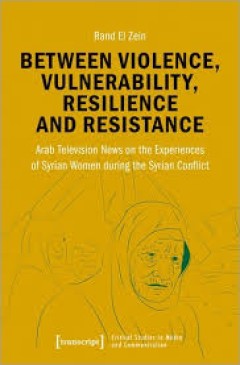
Between Violence, Vulnerability, Resilience and Resistance
I would like to thank the members of my committee, Prof. Dr. Sigrid Kannengieße, Prof. Dr. Kyoko Shinozaki, and Prof. Dr. Rudolf Renger, for their interest, contribution and input. I would also like to acknowledge the support I’ve received from the gendup (Zentrum für Gender Studies and Frauenförderung) and especially the Marie Andeßner Stipendien, as well as the One World Scholarshop a…
- Edition
- -
- ISBN/ISSN
- 9783839459591
- Collation
- 206
- Series Title
- -
- Call Number
- -

The Non-radicalisation of Muslims in Southern Europe = Migration and Integrat…
This open access book explains why southern European countries with significant Muslim communities have experienced few religiously inspired violent attacks – or have avoided the kind of securitised response to such attacks seen in many other Western states. The authors provide a unique contribution to the literature on violent extremism – which has traditionally focused on countries such a…
- Edition
- -
- ISBN/ISSN
- 9783031719967
- Collation
- XV, 124 hlm; ill., lamp.,
- Series Title
- -
- Call Number
- -
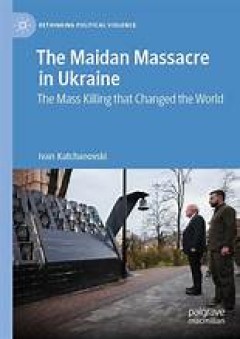
The Maidan Massacre in Ukraine
This open access book provides a comprehensive analysis of the Maidan massacre in Ukraine. It uses a theoretical framework of rational choice, moral hazard, state- repression backfire, and Weberian ideas about rational action to explore the massacre. The book draws on publicly available videos, photos and audio recordings of the massacre in English, Ukrainian, Russian, Polish and other langu…
- Edition
- 1
- ISBN/ISSN
- 978-3-031-67121-0
- Collation
- oer.unej.ac.id
- Series Title
- Rethinking Political Violence
- Call Number
- -
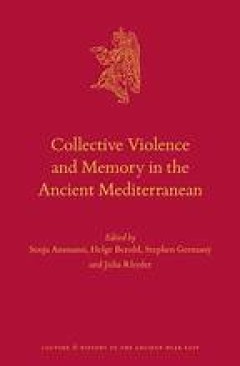
Collective Violence and Memory in the Ancient Mediterranean
This book reveals how violent pasts were constructed by ancient Mediterranean societies, the ideologies they served, and the socio-political processes and institutions they facilitated. Combining case studies from Anatolia, Egypt, Greece, Israel/Judah, and Rome, it moves beyond essentialist dichotomies such as “victors” and “vanquished” to offer a new paradigm for studying representatio…
- Edition
- -
- ISBN/ISSN
- 978-90-04-68318-1
- Collation
- oer.unej.ac.id
- Series Title
- Culture and History of the Ancient Near East, Volume: 135
- Call Number
- -

The Codes of the Street in Risky Neighborhoods = A Cross-Cultural Comparison …
This book presents a comparative look at the norms and attitudes related to youth violence. It aims to present a perspective outside of the typical Western context, through case studies comparing a developed / Western democracy (Germany), a country with a history of institutionalized violence (South Africa), and an emerging democracy that has experienced heavy terrorism (Pakistan). Building on …
- Edition
- 1
- ISBN/ISSN
- 9783030162870
- Collation
- XII, 192 ill; lamp
- Series Title
- -
- Call Number
- -
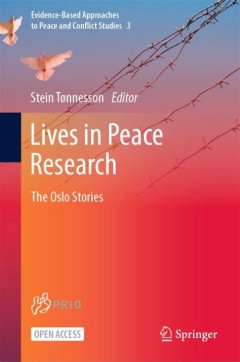
Lives in Peace Research = The Oslo Stories
This open access book explains how PRIO, the world’s oldest peace research institute, was founded and how it survived through crises. In this book, twenty-four of its researchers and associates, including Johan Galtung, Ingrid Eide, and Mari Holmboe Ruge, who founded the institute back in 1959, tell the stories of their roles in inventing and developing peace research. They reflect on their p…
- Edition
- 1
- ISBN/ISSN
- 9789811647178
- Collation
- XX, 508 ill; lamp
- Series Title
- 3
- Call Number
- -
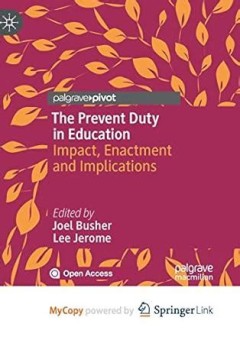
The Prevent Duty in Education = Impact, Enactment and Implications
This open access book explores the enactment, impact and implications of the Prevent Duty across a range of educational contexts. In July 2015 the UK became the first country to place a specific legal requirement on those working in education to contribute to efforts to ‘prevent people from being drawn into terrorism’. Drawing on extensive research with staff, children and young people, the…
- Edition
- 1
- ISBN/ISSN
- 9783030455590
- Collation
- X, 176 hlm; ill., lamp.,
- Series Title
- -
- Call Number
- -
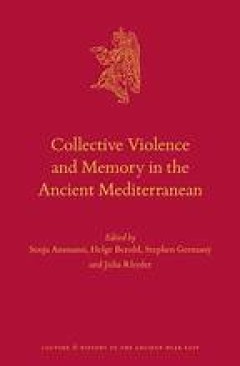
Collective Violence and Memory in the Ancient Mediterranean
This book reveals how violent pasts were constructed by ancient Mediterranean societies, the ideologies they served, and the socio-political processes and institutions they facilitated. Combining case studies from Anatolia, Egypt, Greece, Israel/Judah, and Rome, it moves beyond essentialist dichotomies such as “victors” and “vanquished” to offer a new paradigm for studying representatio…
- Edition
- -
- ISBN/ISSN
- 978-90-04-68317-4
- Collation
- -
- Series Title
- Culture and History of the Ancient Near East, Volume: 135
- Call Number
- -

Collective Violence and Memory in the Ancient Mediterranean
This book reveals how violent pasts were constructed by ancient Mediterranean societies, the ideologies they served, and the socio-political processes and institutions they facilitated. Combining case studies from Anatolia, Egypt, Greece, Israel/Judah, and Rome, it moves beyond essentialist dichotomies such as “victors” and “vanquished” to offer a new paradigm for studying representatio…
- Edition
- -
- ISBN/ISSN
- 978-90-04-68317-4
- Collation
- -
- Series Title
- Culture and History of the Ancient Near East, Volume: 135
- Call Number
- -

Violence in the Balkans : First findings from the Balkan Homicide Study
This is the first volume to offer an in-depth look at (lethal) violence in the Balkans. The Balkans Homicide Study analyses 3,000 (attempted) homicide cases from Croatia, Hungary, Kosovo, Macedonia, Romania and Slovenia. Shedding light on a region long neglected in terms of empirical violence research, the study at hand asks: - What types of homicides occur in the Balkans? - Who are the p…
- Edition
- -
- ISBN/ISSN
- 978-3-030-74494-6
- Collation
- XIII, 113
- Series Title
- SpringerBriefs in Criminology (BRIEFSCRIMINOL)
- Call Number
- -
 Computer Science, Information & General Works
Computer Science, Information & General Works  Philosophy & Psychology
Philosophy & Psychology  Religion
Religion  Social Sciences
Social Sciences  Language
Language  Pure Science
Pure Science  Applied Sciences
Applied Sciences  Art & Recreation
Art & Recreation  Literature
Literature  History & Geography
History & Geography